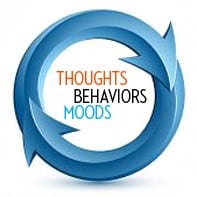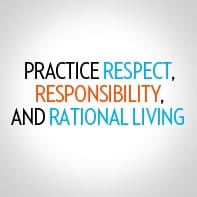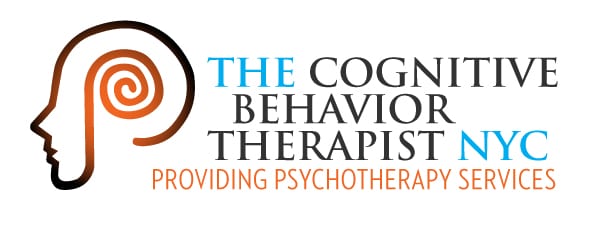Can you maintain a positive outlook in the face of conflict and find a winning solution in a no win situation?
Conflict can appear in many places in our lives, including when dealing with romantic partners, coworkers, friends, family and even the local store clerk. Facing conflict can be extremely challenging and stressful whether it is your conflict or you are trying to manage the conflict of others. Learning to deal with conflict while maintaining a calm, positive outlook that seeks creative solutions can be extremely beneficial to relationships and the success of achieving long terms goals.
Flight or Fight Trigger: Bring out the Gloves or Running Shoes:
For many of us when we are faced with some form of “Conflict”, we feel an immediate sense of anxiety or anger. This is because the “fight or flight” part of the brain gets activated when there is a perception of some form of threat (physical or emotional). Thus when someone is introduced (or reintroduced) to something that challenges their needs or expectations, there is an automatic reaction to defend or flee. This is because the basic assumptions that go along with conflict include “I can fight to preserve my needs” or “I can passively concede to preserve the relationship”.
This leads to one or two typical reactions: arguing a position while dismissing, rejecting or criticizing the other person’s ideas. Or the opposite approach is taken which is to be passive in order to avoid confrontation (mentally or physically) to preserve the relationship status.
The problem with this fight or flight reaction to conflict is that it creates a “no win” pattern especially in long term relationships and situations. Inevitably it leaves one party feeling victorious and the other feeling at a loss. Either way this doesn’t sound like it’s positive. 
Creative Solution:
Instead it would be better to listen to everyone’s needs and try to find a solution that addresses all of it. This is often difficult because when conflict first approaches people focus only on their needs.
This creative approach takes listening closely to “why” each person involved wants something. Why each person wants something usually is very different, so often there is alternative solution (or set of solutions) where everyone can get their most important needs met. This can be challenging because quite often people are not equipped with skills to express “why” something is important to them so it involves patience.
When you are equipped with the information of “Why” each person wants something then, then you can start to come up with solutions that address everyone’s desires.
- What to do to help this process:
- 1. Take a step back. Take the needed amount of time to breath and allow the alarm reactions to calm down. Make sure everyone has the time and emotional capacity to discuss .Then approach the conflict with a soft set up. Harsh set ups usually result in negative results.
- Have an open dialogue. Establish rapport and a secure safe environment that allows for open disclosure.
- Ask open ended questions about what is happening in the other person’s perspective.
- What is it they wish for? Why do they have these needs?
- Take their perspective. Develop perspective and empathy. Gain knowledge by building a point of view from their perspective.
- Ask yourself or them directly “How does what you are doing (or not) doing impact them?”
- Consider or ask directly “What are the emotional needs?”
- Consider or ask directly “What are their logistical/ situational needs or reasons?”
- Tip: Even if you are looking to negotiate your point of view, you are much more likely to be persuasive if they feel you genuinely understand their point of view.
- 2. Acknowledge and demonstrate you get their view. Confirm you understand or clarify you are trying to understand their needs and build emotional trust:
- Use language and actions that convey thoughts about the others person’s point of view AND how it ties to their needs. e.g. “So what you are trying to say is that you are concerned about xyz because of your needs of pdq? Is this correct? Did I get you correctly?
- Or use a question to clarify if you are lost. E.g. “I think you are saying you need me to do xyz because when I don’t it impacts how you are able to complete pdq is that correct?”
- Find agreement: Synergize: be positive and find something you both you really agree upon “We can all agree that we would like to be more successful”.
- Express your needs in a similar way (go thru 1-3 again)
- Brainstorm Solutions to resolve “the dilemma”.
- Focus on addressing the “why” not the “what” of something. This way you will avoid grid lock
- Reframe problems as though they belong to you both and determine what is the common goal based on “Why’s”
- Communicate the terms and measures that are fair based on why you need something. Often times when we get into a conflict state we focus on comparisons that are not necessarily significant to our own individual needs. This can also clear up any misperceptions of what is fair or meaningful
- Continue to communicate about emotional and operational needs that are not yet met. This continues to build trust through acknowledgment of each other.
For example:
Jack and Jane are fighting over what to do with the holiday break. Jack wants to stay home. Jane wants to go away on a beach family vacation. His operational “why” is money to pay for the last credit card bill, plus the cost of this trip and emotionally it is to feel calm and not anxious about not having enough money in their savings account. For Jane her operational “why” is to spend the time wisely while the kids are off from school and the emotional “why” are to feel connected by creating family memories.
The collective problem(notice how it focus it on the “Whys” not the “What they wanted”: How to spend the time off from school /office that allows them to build quality memories, and does not add to their family debt to they can connect and feel calm.
One of their solutions involved having a stay-cation that involved small day trips and game days at home. They set aside a reasonable budget that allowed them to have memories created (lots of photo opportunity) and also not add debt to their bills.
Of course Jack and Jane continue to have different ideas about how to spend time and money so they will need to continue building on this dialogue as situations occur.
For more information on conflict resolution skills and couples counseling and executive coaching services contact us a
Call us: 212-631-1133
Email us at: info@cbt-newyork.com

















